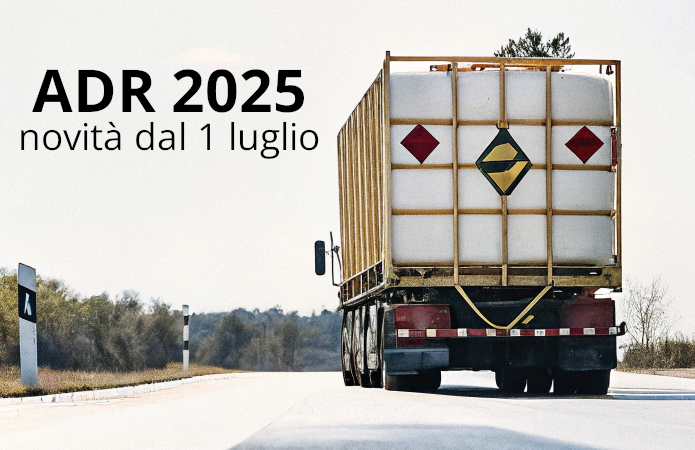Waste and hazardous goods transportation
Proper management for the protection of health, the environment, and safety.
Waste management and the transport of dangerous goods require strict handling protocols. Proper handling, storage, and disposal are essential to prevent environmental pollution and legal risks for the company.
 Legislative Decree 152/2006, known as the Environmental Consolidation Act (Testo Unico Ambientale - TUA), is the main regulatory reference in Italy for environmental protection. It governs key aspects related to waste management, water protection, air pollution, remediation of contaminated sites, and more.
Legislative Decree 152/2006, known as the Environmental Consolidation Act (Testo Unico Ambientale - TUA), is the main regulatory reference in Italy for environmental protection. It governs key aspects related to waste management, water protection, air pollution, remediation of contaminated sites, and more.
Specifically, Part Four is dedicated to waste management and the remediation of contaminated sites: it represents the fundamental regulatory framework for waste management, collection, treatment, transportation, and disposal activities in Italy. It aligns with the European Directive 2008/98/EC and subsequent amendments, incorporating principles of circular economy and sustainability.
Our experts can support you in this delicate area by providing:
Regulation on the transport of hazardous goods and waste by road (ADR) and by air (IATA)
ADR 2025: operational updates effective from July 1st!
On July 1st, 2025, ADR 2025 (European Agreement concerning the International Carriage of Dangerous Goods by Road) officially came into force in Italy.
After a six-month transitional period, all companies involved in the transport of dangerous goods must now fully comply with the new ADR 2025 rules. The previous 2023 edition is no longer permittedADR 2025 introduces new provisions for:
a) Sodium-ion batteries: This emerging alternative to lithium batteries is now subject to similar regulations. It is necessary to update safety data sheets, labels, storage, and transport procedures.
b) Asbestos-containing waste: Under the new Special Provision 678, simplified transport is allowed for non-friable asbestos waste using approved big-bags, provided no dust is released.
c) Compatible paints: It is now possible to transport compatible paints and mixtures using a more streamlined procedure, after verification with an ADR consultant to confirm eligibility for this simplification.
d) ADR documentation: Transport document templates must be updated to include information such as the ADR vehicle license plate and must be kept in the cabin at all times.
e) Training and instructors: New requirements have been established for those providing ADR training courses. Instructors must hold a technical degree, be certified as ADR Consultants, and the training body must demonstrate at least 10 years of experience.
f) Occasional shippers: Exemptions from the appointment of an ADR Consultant have been confirmed for occasional shippers who operate non-systematically, handle small quantities, and do not engage in critical activities such as classification or packaging.
On-site inspections to verify correct temporary waste storage. These activities are essential tools for ensuring that waste management complies with current regulations. Inspections may be carried out by competent authorities such as regional ARPAs, the Carabinieri Environmental Protection Unit (NOE), local police, or other designated bodies—either following reports or as part of scheduled inspections..
Technical-specialist assistance in compliance with Legislative Decree 152/06 as amended.
This includes regulatory (MUD) and administrative obligations (correct completion of waste tracking forms and registers). The MUD (Environmental Declaration Form) is an essential tool for waste traceability in Italy. It is an annual report that obligated parties must submit to declare data on the production, management, and disposal of waste generated or handled in the previous year. The MUD is regulated by Legislative Decree 152/2006 (Part Four, Article 189) and a Prime Ministerial Decree (D.P.C.M.), which is periodically updated to define its format and submission procedures.Consulting for proper waste classification and comprehensive support.
This includes regulatory (MUD) and administrative obligations (correct completion of waste tracking forms and registers). This is a critical aspect to ensure compliance with regulations and to avoid penalties or environmental risks.
Providing complete consulting in this area requires a structured approach that begins with a preliminary analysis of company activities to define a tailored plan, with support from environmental, technical, and legal experts.
Would you like to delve deeper into the topic?
Request a personalized consultation from our experts!
REQUEST A PERSONALIZED CONSULTANCY
You might be interested in: Environmental sustainability | Environmental compliance | Safety certification